Banned Iranian Academic Calls On Khamenei To Hold National Referendum
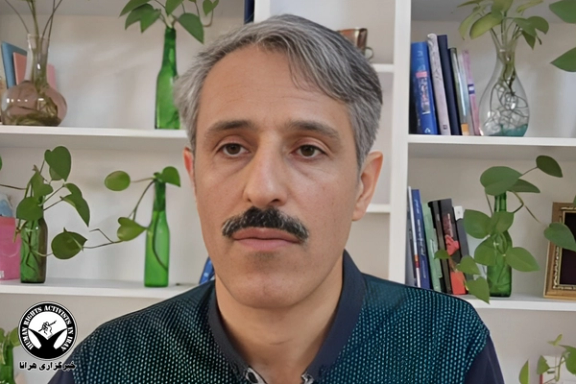
Hasan Baqerinia, a faculty member at Hakim Sabzevari University in Iran, has called on Supreme Leader Ali Khamenei to initiate reform through a national referendum.

Hasan Baqerinia, a faculty member at Hakim Sabzevari University in Iran, has called on Supreme Leader Ali Khamenei to initiate reform through a national referendum.
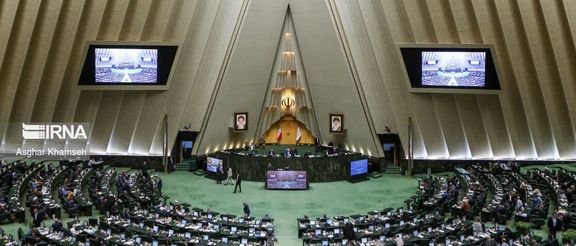
The massive disqualification of candidates for Iran’s March parliamentary elections was the focus of attention, but few paid attention to those who passed through the net.
One notable individual is heavyweight traditional conservative Mohammad Reza Bahonar, whose candidacy in the elections can change Iran's domestic political landscape, at least for the next four months.
While the first round of disqualifications by the interior ministry ensures a reformist-free election, the presence of a seasoned conservative politician with strong credentials, connections to Supreme leader Ali Khamenei, and a background as a seven-term member of parliament and powerful deputy speaker, signals possible trouble for the hardliner camp.
Bahonar’s candidacy could sow discord and chaos among the ultraconservatives whom President Ebrahim Raisi hopes to send to the next parliament to ensure another easy four years for him as the President. Raisi's big man to lead his list of candidates is hardline cleric Morteza Aqa Tehrani, the former Imam of the Iranian mosque in New York and the former leader of ultraconservative Paydari Party.
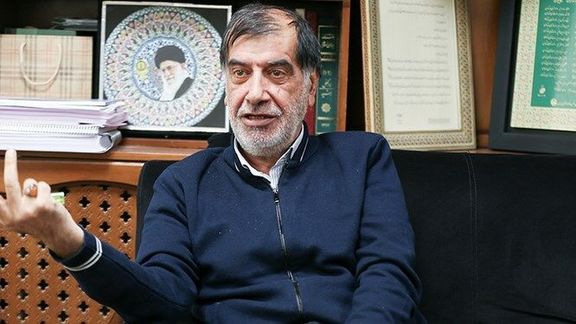
However, there are others who aspire to send their representatives, including a few women, to the parliament. Incumbent parliamentary Speaker Mohammad Bagher Ghalibaf is among those with such intentions. He aims to dispatch a team of technocrats to the Majles, leading as a candidate himself.
As if the competition wasn't challenging enough for Raisi and Ghalibaf, Mohammad Reza Bahonar has entered the scene—a political leader who oversees at least two major conservative groups: The Islamic Association of Engineers and the Front of Followers of Khomeini and Khamenei, showcasing clear signs of influence over both organizations. His entourage destined for the next parliament comprises a cadre of traditional pragmatist conservatives.
A Tehran-based website has described the situation as "a blessing in disguise for Ghalibaf." Unable to compete with Raisi and Aqa Tehrani's ultraconservative thugs, Qalibaf can ensure a better standing for himself only if he can convince Bahonar to join hands with him and his neo-cons. That is what Ghalibaf likes to call his team a fashionable term which also suggests a more modern outlook.
Khabar Online went on to portray the state of Iran's upcoming parliamentary elections in the Tehran Bazaar's slang as "transitioning from a private joint-stock to a public joint-stock company."
However, this description cautiously sidestepped two key considerations. First, since 2005, it has been Supreme Leader Khamenei and the surrounding civilian and military circle, not the voters, who have determined the outcome of every election in Iran. Second, there is a broad consensus among various political figures that not only will this be a low-turnout election, but the current government and the controlling ultraconservatives are not inclined toward a high-turnout election.
As the leader of centrist Executives of Construction Party Hossein Marashi said in his party's mouthpiece, Sazandegi newspaper last week that "the government's strategy about the elections has changed from one of maximum political participation to limited participation with predetermined results." Marashi put it rather bluntly. "This is not a competition between reformists and conservatives. It is an election to choose either Raisi or Ghalibaf."
Even before Bahonar's entry the rivalry between the Iranian President and Parliamentary Speaker was said to be fierce. As Raisi is beginning to perceive a possible alliance between Bahonar and Ghalibaf as an unexpected threat, his reaction can come as a surprise.
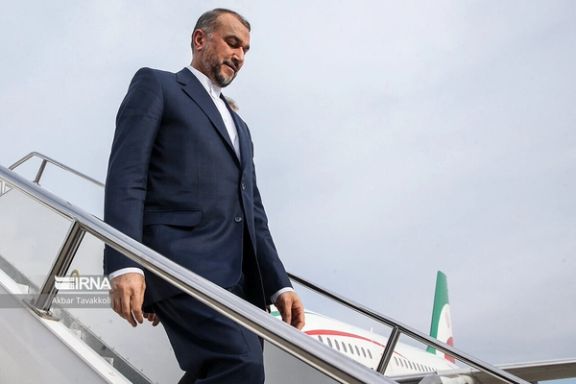
Iranian Foreign Minister Hossein Amir-Abdollahian is set to commence a regional tour in the aftermath of the announced four-day truce between Israel and Hamas.
As reported by the Nournews agency affiliated with Iran's top security body on Wednesday, the purpose of the visit is aligned with Iran's endeavors to halt Israel's retaliatory attacks on Gaza, lift the blockade, and provide humanitarian aid to Gaza.
The temporary cessation of hostilities between Israel and Hamas aims to facilitate the release of 50 of the 240 hostages being held in Gaza, in exchange for 150 Palestinians imprisoned in Israel, along with the entry of humanitarian aid into the besieged enclave.
Lebanese media outlets have indicated that Amir-Abdollahian is anticipated to engage in discussions with key Lebanese figures, including Nabih Berri, the Speaker of Parliament, Najib Mikati, the Prime Minister, Hassan Nasrallah, the Secretary-General of Hezbollah, and several other Lebanese and Palestinian political leaders.
In an interview with Iran International, Lebanese journalist Tony Boulos suggested that Amir-Abdollahian's swift return follows the developments in the negotiations for a ceasefire in the Gaza Strip. According to Boulos, the Iranian Foreign Minister's visit to Lebanon aims to align directives with recent developments, particularly considering his consistent representation of Lebanon in diplomatic matters.
Amidst ongoing questions about the fate of the Lebanese front, there is speculation about whether the southern part of the country will also experience a ceasefire or if operations and engagements will persist.
Iranian officials have consistently denied involvement in the terror attack by its Palestinian proxy, despite government praise for the Hamas invasion on October 7 and immediate orders for street celebrations, with large banners erected within hours.

Washington has called on the Islamic Republic to stop torture, mock execution and issuing death sentences without fair trial for prisoners.
In a statement issued Tuesday via the Farsi account of the US State Department on the social media platform X, the United States called on the Islamic Republic to cease the practice.
The State Department utilized the hashtag #SamanYasin in expressing deep concerns over the wellbeing of the imprisoned Iranian rap artist.
Saman Seydi, widely recognized by his stage name Saman Yasin, was arrested in October 2022 during anti-regime protests in Iran and was initially handed a death sentence. However, the sentence was later overturned by the Supreme Court.
Ahmadreza Haeri, a political prisoner held in Qezel Hesar Prison, revealed in a letter on Monday that Yasin had recounted a disturbing incident from December of the previous year. According to Yasin, Evin Prison officials took him out of his ward at three in the morning, stating, "If you have a will, write it."
Reportedly, Yasin was taken to the gallows with his hands tied and eyes blindfolded, where officials discussed tying the noose off-center to ensure a swift and less agonizing death.
In a turn of events, officials informed Yasin, after a phone call, that he was being given another chance for "cooperation," leading to the abandonment of his execution.
In response to the reports, the US Department of State emphasized, "The use of fabricated execution, torture, and issuing death sentences without a fair trial not only violates human rights but is also contrary to fundamental respect for human dignity."
The US called on the regime to "immediately cease such inhumane actions and conduct fair and transparent trials for their citizens."
In May alone, a record 142 prisoners were excited as the surge continues. In July, Iran Human Rights Organization reported at least 354 executions had taken place this year.
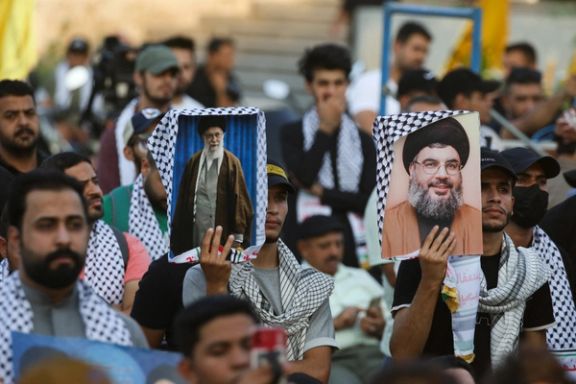
After weeks of drone and rocket attacks against US troops in Iraq and Syria, the United States carried out a series of strikes in Iraq against Iranian-backed militants.
Until this week, the United States had been reluctant to retaliate in Iraq because of the delicate political situation there. It retaliated only in Syria launching three strikes in October and November.
Iraqi Prime Minister Mohammed Shia Al-Sudani has limited control over the Iranian-backed militias, whose support he needed to win power a year ago and who now form a powerful bloc in his governing coalition.
The strike on Tuesday evening targeted two facilities in Iraq, the US military said in a statement.
"The strikes were in direct response to the attacks against US and Coalition forces by Iran and Iran-backed groups," the statement said.
The strike by fighter aircraft targeted and destroyed a Kataeb Hezbollah operations center and a Kataeb Hezbollah Command and Control node near Al Anbar and Jurf al Saqr, south of Baghdad, a US defense official said, speaking on condition of anonymity.
Kataib Hezbollah paramilitary group said five of its members were killed in the strikes in the Jurf al-Sakhar area south of Baghdad, in a statement posted on social media on Wednesday.
Iraq's Kataeb Hezbollah militia is a powerful armed faction supported by Iran's Quds Force, the extraterritorial branch of the Revolutionary Guard.
The official said there were Kataeb Hezbollah personnel present, but an assessment was ongoing about casualties.
Iran has so far avoided direct involvement in the Gaza war, but its proxy forces across the region, including from Lebanon and Yemen, have launched attacks against Israel and US forces.
About 24 hours earlier, US forces were attacked at an air base west of Baghdad and a US military AC-130 aircraft responded in self-defense, killing several Iranian-backed militants, US officials said.
Ain al-Asad air base was attacked by a close-range ballistic missile that resulted in eight injuries and minor damage to infrastructure, two US officials said.
The United States had so far limited its response to the 66 attacks against its forces in Iraq and neighboring Syria, claimed by Iran-aligned Iraqi militia groups, to three separate sets of strikes in Syria.
At least 62 US personnel have suffered minor injuries or traumatic brain injuries in the attacks.
Republicans and others criticized the Biden administration for its lack of determination to respond more forcefully against Iranian proxies. Even Pentagon officials in recent days began to talk to the media about their frustration over lack of deterrence. The Washington Post reported that US Department of Defense chiefs were frustrated by lack of action in dealing with Iran-backed attacks.
“Are we trying to deter future Iranian attacks like this,” a Pentagon official told the Washington Post on the condition of anonymity. “There’s no clear definition of what we are trying to deter.”
The attacks against US targets have ended a year-long unilateral truce that Iranian proxy groups in Iraq observed, as Tehran was negotiating the release of its frozen funds in Iraqi and South Korean banks. The US agreed earlier this year to unblock around $17 billion, followed by the Hamas terror attack on Israel. The militias then resumed their drone and rocket strikes against US bases, saying it was in retaliation for US support for Israel.
The United States has 900 troops in Syria and 2,500 in Iraq on a mission it says aims to advise and assist local forces trying to prevent a resurgence of Islamic State, which in 2014 seized large swaths of both countries before being defeated.
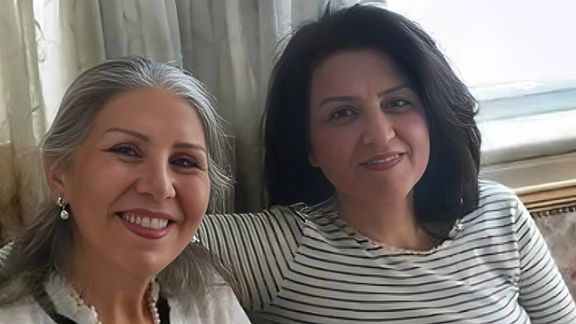
A former leader of the Iranian Baha’i community says the Islamic Republic gives them no chance of “leading a normal life” on account of their faith.
“For forty-five years, we Baha’is have been constantly disqualified from leading a normal life in our ancestral homeland,” Mahvash Sabet, a former member of the Baha’i community’s leadership group wrote in a letter from Tehran’s Evin Prison.
She reflected on the impact of the Islamic Revolution of 1979, stating, "Our ancestral homeland was abruptly taken from us, and we became 'the others'." Sabet recounted the misfortunes suffered by the Baha’i community, including the execution of nearly 250 of its members and the confiscation of assets belonging to many others.
The Shia clergy consider the Baha’i faith as a heretical sect. With approximately 300,000 adherents in Iran, Baha’is face systematic persecution, discrimination, and harassment. They are barred from public sector employment and, in certain instances, have been terminated from private sector jobs due to pressure from authorities.
The Constitution of the Islamic Republic recognizes only Islam, Christianity, Judaism and Zoroastrianism. Supreme Leader Ali Khamenei has on several occasions called the Baha'i faith a cult and in a religious fatwa in 2018 forbade contact, including business dealings, with its followers.

In her letter, a copy of which was received by Iran International, Sabet has used the term “disqualified” (radd-e salahiyat) to describe Iranian Baha’is deprivation of civil and human rights including freedom of religion, the right to higher education, and most jobs.
In the context of ideological screening primarily carried out by security and intelligence bodies, Radd-e salahiyat means “found disqualified” for a position or status. Screening is conducted in a wide range of situations including higher education, civil service, participation in national sports teams, and elections.
Belief in the absolute guardianship and rule of a jurisprudent cleric (velayat-e motlaqqeh-ye faqih) and the Constitution of the Islamic Republic as a governing system are two of the fundamental requirements for being “qualified” in these situations.
Sabet, now seventy-one, was dismissed from her job as a school principal after the Islamic Revolution of 1979. She has been consistently denied the opportunity to publish her poetry in Iran, where books undergo scrutiny and rejection not solely based on their content, but often due to the authors' ideology, religion, or private lives.
In her letter, Sabet, who has spent nearly twelve years in prison for her faith, reveals that authorities appropriated a sand processing factory her husband had been constructing just a week before its launch. “He was disqualified, too!” she wrote in her letter.
In 2009, seven leaders of the Baha’i community, collectively known as Yaran (friends or helpers), including Sabet, were arrested. They were sentenced by a revolutionary court to 20 years in prison on fabricated charges, including "insulting" Islamic sanctities, propaganda against the regime, and alleged spying for Israel, for which the prosecutor had sought death sentences.
Some of the charges, including espionage, were dropped by an appeal court in 2010, resulting in a reduction of their sentences to 10 years. However, authorities reinstated the original 20-year sentences in 2011.
All members of the Yaran group were released from prison between September 2017 and December 2018. However, Sabet and Fariba Kamalabadi, another female member of the group, were arrested again on August 1, 2022.
Both women endured months of solitary confinement while awaiting their trial. In December, they were handed another decade-long prison term for "forming a group to act against national security," a sentence they are currently serving.
Baqerinia, known for his outspoken criticism of the government, was expelled and banned from teaching following his dissent during the 2022 uprising in Iran.
In a video message, Baqerinia directly addressed the Supreme Leader, advocating for a shift away from repression and toward democratic change. "Instead of repression, hold a referendum," he urged.
The expelled professor questioned Khamenei's stance, asking, "Why should you be indifferent to the lives lost and blinded eyes?", referring to the scores of protesters blinded by security forces and more than 500 killed in brutal suppression in the wake of 2022's Women, Life, Freedom protests.
Hakim Sabzevari University, which took action against Baqerinia in February, accused him of attempting to “influence public opinion and students by disseminating various messages that had a tangible impact on unlawful student gatherings.” It is part of an almost two-decades-long purge being seen across the country as the regime tries to oust dissent and replace academics with pro-regime voices.
In August, Etemad newspaper released a list of 157 professors who have been expelled, forcibly retired, or suspended from teaching for actions which took place between September 2021 and August 2023, aligning with the beginning of President Ebrahim Raisi's government.
Recalling the Supreme Leader's statement from the previous year regarding individuals engaged in street protests, Baqerinia emphasized the need for understanding rather than collective punishment.